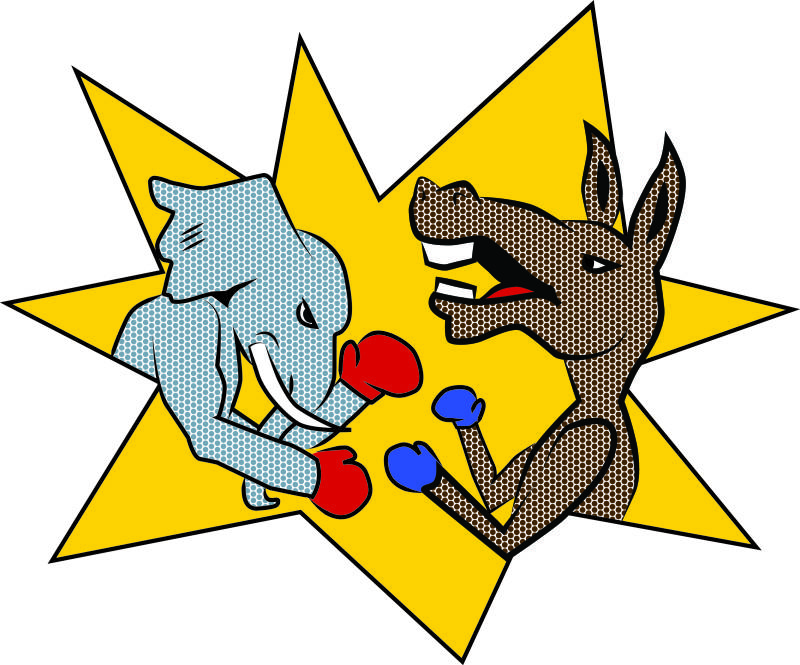
As the presidential candidates make their final efforts to woo Iowa voters before the Feb. 1 caucuses, some DePaul students plan to take advantage of their Iowan birthright and head home to participate.
Gabie Hart, treasurer of DePaul Democrats, is returning to her home state next week to caucus. She intentionally reregistered to vote in Iowa rather than Illinois in order to do so.
“I feel like the Iowa caucus is very unique. It’s a unique experience to take part in. I don’t know if I’ll be living there again, so it’s something that’s dear to me,” Hart said. “And also I just think it’s an important state to vote in as opposed to Illinois. Being a Democrat in Illinois, you kind of get lost.”
Hart, a senior majoring in public policy, is from Bettendorf, Iowa. This will be her second time caucusing. The first, which was during the 2012 election cycle, took place in an elementary school gym filled with around 40 people, she said. Although the Iowa caucuses are normally closed to those who are not registered to vote in one of the two major parties, 2012 was an exception because President Obama was the incumbent Democratic candidate. As a result, Hart, who is a Democrat, was allowed to partake in the process.
“They literally pass(ed) around a piece of paper, like in elementary school, and then you vote(d) … It’s extremely grassroots,” Hart said.
This year, she hopes to be nominated as a delegate by her local caucus. If so, she would then proceed to participate in the state caucus.
Other students, like freshman Gracie Fleming, are headed to Iowa to help out with certain campaigns during the caucusing process. Fleming is a Bernie Sanders supporter and plans to travel to Dubuque, Iowa, where she will assist the Sanders campaign effort. She said she is drawn to Sanders because he seems to focus on issues relevant to the college-aged generation.
“I think what I’ve learned in college even so far is that there are all these things that are wrong and no one is going to do anything about it,” Fleming said. “He kind of says those things and preaches those things that we all hear. Politicians just don’t really talk about the real issues anymore these days. I don’t really trust politicians and feel like they’re just in it to get re-elected. But I just don’t feel that way about Bernie.”
Fleming is a member of the group Chicago Students for Bernie Sanders, formerly known as DePaul Students for Bernie Sanders. The organization is registered on OrgSync and has a Facebook page with 425 members, but is not actively campaigning for Sanders. Fleming said she suspects this is due to rules surrounding DePaul’s status as a nonprofit, which bars it from endorsing political candidates. Consequently, Sanders-specific events are not allowed on campus.
Other political groups on campus are also beginning to prepare for the upcoming primary election season.
Most notable among these are College Democrats, College Republicans and the not-for-profit conservative organization Young Americans for Freedom, all of whom say that their chief goals are to increase student voter registration and general political awareness before the March 15 primary in Illinois and those held in their respective states.
“Not only do people not know who the candidates are, but they don’t really know the point of the primaries or even the election at all,” said Nicole Been, president of College Republicans. “I just think that getting generally more involved with the issues is important. Maybe not even picking a candidate yet, maybe not even voting in the primaries yet, but just being aware.”
The primaries, an oft-forgotten portion of the presidential election cycle, have a notoriously poor voter turnout rate. According to a study by the Bipartisan Policy Center, just 17.3 percent of eligible citizens showed up to vote in the 2012 presidential primaries. In comparison, around 57.5 percent of eligible citizens voted in the general elections later that year.
“Students are a very big population in our country, and a lot of the time we aren’t represented very well by the people that we vote for,” said Nassir Faulker, president of College Democrats. “Or the people that we don’t vote for because we don’t vote.”
In an effort to combat this, College Democrats and Republicans have tentative plans to team up with the Student Government Association for a voter registration drive, according to Faulkner. He said that political participation is valued above all else, regardless of political orientation. Additionally, College Republicans will host a table every Wednesday for several weeks in order to answer any questions that students may have about the presidential race.
Although not formally affiliated with either political party, the Young Americans for Freedom group also plans to work to promote the primary elections.
“We want to get the information out there to help get everyone to register to vote and we want to have a discussion with the DePaul community,” said Sofia Fernandez, who is president of DePaul’s chapter. “We don’t necessarily promote any single candidate. We’re more (about) promoting conservative ideals.” She cited the economy and social issues as being among those ideals.
Despite a somewhat stalled effort from the Sanders group on campus, Fleming said she still aims to campaign for him in Chicago during the weeks leading up to the primary. Much like the other political organizations on campus, she also wants to table in order to get a chance to explain certain voting processes to students, like absentee voting and registration.
“I think (Sanders) is only going to win if young people actually go out and vote. I think that’s kind of the biggest problem with elections right now,” Fleming said. “It’s so hard for young people to go vote. Young people just don’t vote, and they have such strong opinions.”